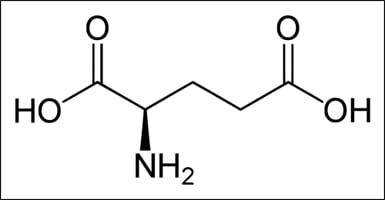Glutamic Acid - Uses, Benefits, Sources and Dosage

Glutamic acid is considered as the essential amino acid for the protein synthesis. It is in the same amino acids family as glutamine and they can change their structure to transform into each other. Glutamic acid offers the several health benefits and maintains the healthy functioning of body. It supports the good health of immune system, digestive system as also aids in the energy production in the body. Everyday approximately 80 g of glutamic acid is released from muscles into body circulation. Glutamic acid is the most common neurotransmitter which is found in the brain and spinal cord. It plays an integral role of excitatory neurotransmitter in the central nervous system as it helps in the regulation of number of ions like sodium, calcium and magnesium.
Health Benefits of Glutamic Acids
- It helps in the metabolism of fats and sugars. Also aids in potassium transportation across the blood brain barrier and spinal cord.
- Glutamic Acids helps in the detoxification of ammonia by taking up the nitrogen atoms during the formation of glutamine amino acid. Process of conversion of glutamic acid into glutamine is only way through which ammonia in the brain is detoxified.
- This acid plays an important role to resolve the childhood behavioral disorders as well as personality disorders. Even used in the treatment of various other diseases like mental retardation, epilepsy, muscular dystrophy and ulcers.
- It is used in treatment of hypoglycemic coma, a complication which is associated with insulin treatment for diabetes.
- This helps in the breakdown of folic acid.
- Helps in support the good heart health.
Food Sources of Glutamic Acid
- Dairy products like milk, yogurt and cheese are the rich sources of glutamic acid. Cottage cheese and ricotta cheese are especially rich in glutamic acid.
- All the beans/ legumes are rich in the proteins and also contain the significant amounts of glutamic acids.
- Vegetable Sources of glutamic acid include beets, cabbage, spinach, kale, parsley, wheat and wheatgrass.
- Meat products like poultry, fish and eggs are also the rich sources of glutamic acids.
- Sources of glutamic acid includes high-protein foods, such as meat, poultry, fish, eggs and dairy products.
Deficiency of Glutamic Acid
Glutamic acid deficiency occurs in the people who take low protein diet. Vegan or vegetarian are not only deficient in the glutamic acid but also in all other amino acids. Glutamic acid deficiency results in the diarrhea, insomnia, brain dullness and ulceration in gastrointestinal tract.
Glutamic Acid Side Effects
Glutamic acid side effects may result in the headache and neurological complications.
People who have the liver or kidney problems must consult with their doctors before taking any glutamic acid supplements.
Daily Recommended Dosage of Glutamic acid
Daily recommended dosage is about 2-15 grams of glutamic acid. This dosage is considered as the minimum requirement of body for the prevention of nutrient deficiency in the body. Though the dosage of glutamic acid can be altered by keeping the toxicity levels in the mind.



